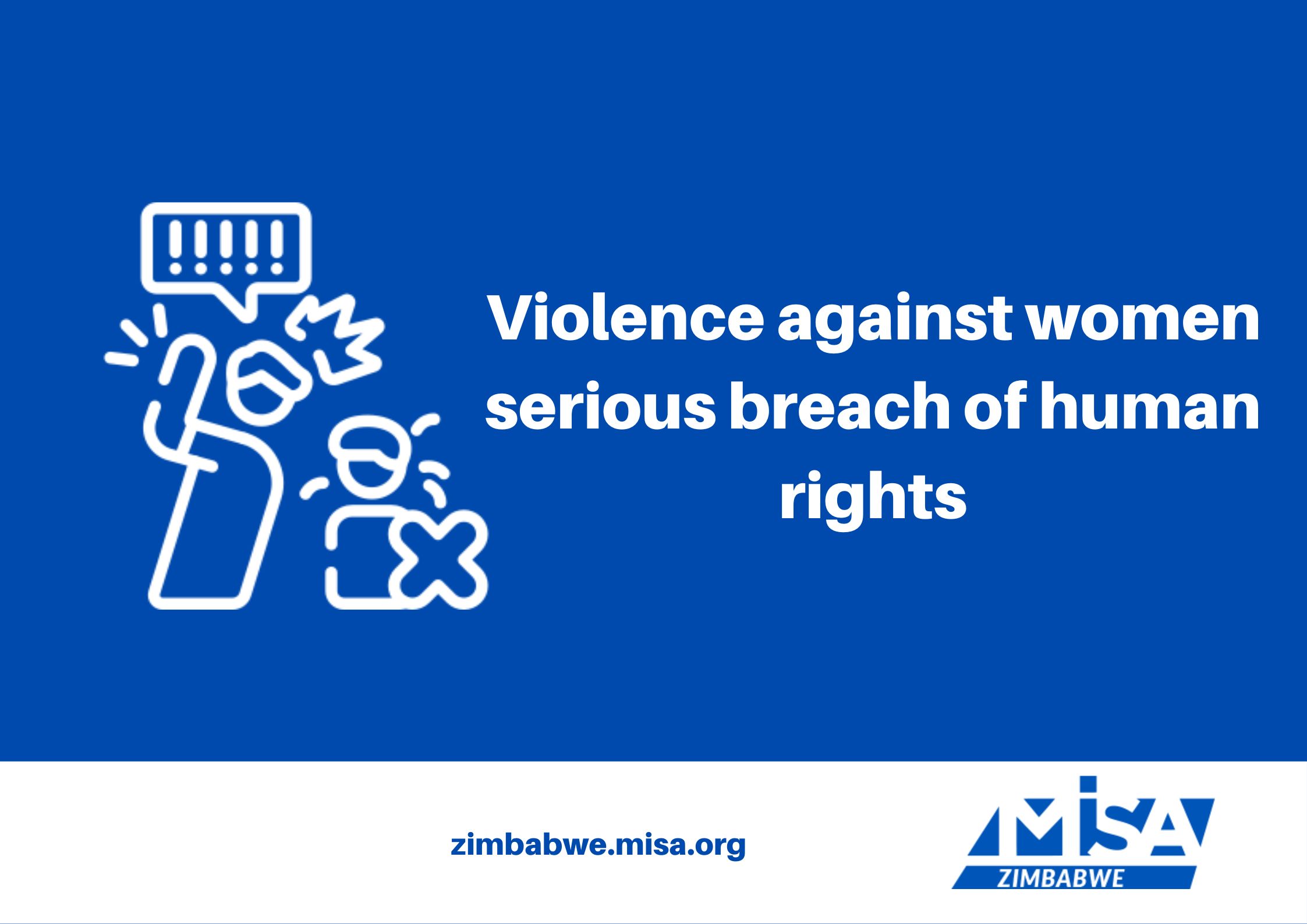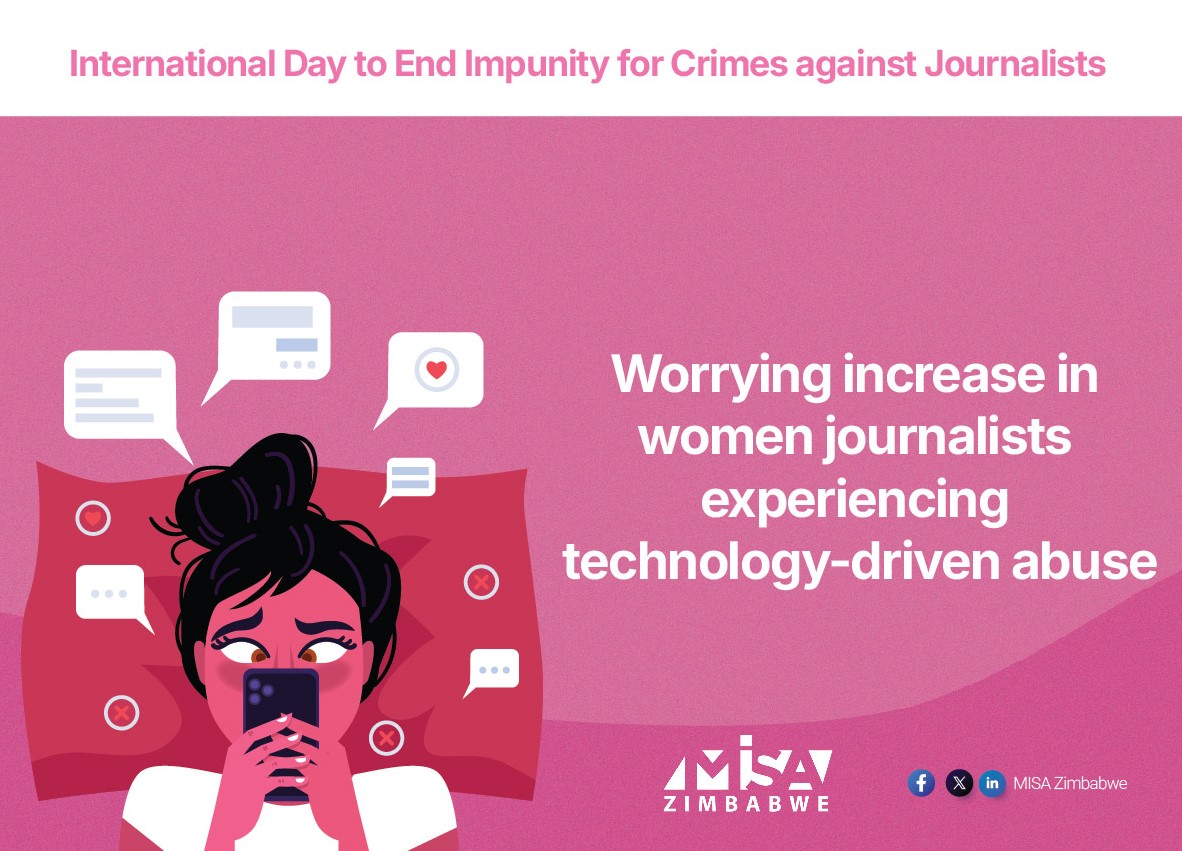Violence against women is the most pervasive breach of human rights worldwide which is being worsened by targeting and attacking women including female journalists who are vocal online.
As the world commemorates the International Day for the Elimination of Violence against Women, on 25 November 2023, MISA Zimbabwe is cognisant of the 2018 remarks by the former UN Special Rapporteur on Violence Against Women, Dubravka Simonovic:
Online and ICT-facilitated forms of violence against women have become increasingly common, particularly with the use, every day and everywhere, of social media platforms and other technical applications…
It is therefore important to acknowledge that the Internet is being used in a broader environment of widespread and systemic structural discrimination and gender-based violence against women and girls, which frame their access to and use of the Internet and other ICT.
Online violence against women is worsened by gendered disinformation which includes false, misleading, or harmful content that exploits gender inequalities or invokes gender stereotypes and norms.
It also involves targeting specific individuals or groups, for example female journalists or other women who are vocal online. This is of particular concern to MISA, as it negatively affects a significant constituency of its members who are journalists.
The international day kickstarts the global 16 Days of Activism Against Gender-Based Violence.
According to the World Health Organisation, it is possible to end this violence, but only if we act together, now.
In this regard, during the 16 Days of Activism and beyond, MISA Zimbabwe will be shining the spotlight and raising awareness on the African Commission on Human and Peoples’ Rights (ACHPR) Resolution 522 on the Protection of Women Against Digital Violence in Africa.
Resolution 522 highlights that: Digital violence is increasingly gendered and disproportionately affects women, through inter alia threats of sexual violence, misogynistic disinformation campaigns and “revenge pornography…”
The Resolution encourages member states to undertake measures to safeguard women journalists from digital violence, including gender-sensitive media literacy and digital security training.
It also calls on member states to facilitate cooperation between law enforcement and service providers to identify perpetrators and gather evidence for online harms.
Zimbabwe’s Cyber and Data Protection Act has provisions that deal with cyber-bullying and harassment. Such provisions are progressive as far as women’s rights online are concerned.
Several women, particularly female journalists and female politicians in Zimbabwe, have been victims of cyber-bullying and harassment, which has greatly affected the exercise of digital rights by women.
MISA Zimbabwe will thus be engaging the government to set in motion processes for the implementation of the recommendations of Resolution 522. The 16 Days of Activism will also be marked by campaigns to raise awareness and mobilise women and female journalists to articulate, demand and defend their right to free expression online.
MISA Zimbabwe urges the government, the country’s constitutional Chapter 12 Independent Commissions, civil society organisations and other key stakeholders to unite and intensify efforts to prevent and eliminate violence against women and girls, both offline and online.
MISA Zimbabwe Statement on the 16 Days of Activism against Gender Based Violence
Golden Maunganidze
MISA Zimbabwe Chairperson













